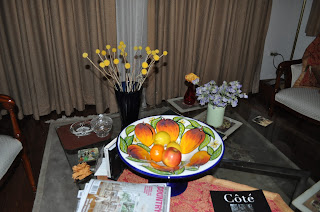“Fearlessness in those without power is maddening to those who have it.”
One of my favorite quotes from CM's book: “I feel that the greatest asset that my part of Europe received in the history of the twentieth century, the privilege of our being the avant-garde of inhumanity, is that the question of true and false, good and evil, became operative again. Namely, good and evil, true and false have not been discovered through philosophical discourse, but empirically, like the taste of bread.”
~ Czeslaw Milosz: Conversations.
What Peter Drucker Had to Say About Automation Harvard Business Review
Contractors That Defraud the Government the Most Also Spend the Most on Lobbying The Intercept
The Best Offense in College Football Is Also the Laziest WSJ. There’s a lesson here for all of us!
The Mega-Danger of Mega-Deals: Monopolies Are Crushing U.S. Workers and Consumers David Dayen, Fiscal Times
Fearless Arthur Miller in 1955 ...
Half of advertising is wasted but no one knows which half ... Very good Ian Leslie FT piece on how advertising works, or doesn’t.
It is painters like Rochard McSweeney who make you see differently and who point out the obvious reflections. “Look.” I looked and all I saw was water. And he said, “Look again,” which I did, and I saw oil on the water and the city reflected in the puddle. It was a great revelation to me. I can’t explain it. He taught me how to see, and how to trust what I saw. Painters have often taught writers how to see. And once you’ve had that experience, you see differently.
“Amazon Books, like a Barnes & Noble of yore, comes complete with plush leatherette chairs for relaxed reading. There are open areas for browsing and chatting. There’s a kids’ area. (“Relax, read, and discover great books with your children,” the release invites.) Which is also to say that Amazon Books is trying to be a place of community—a place where people will meet and hang out.” The Atlantic
 |
| Barrosa Valley Jars Wooden Spools |
Ellendea Proffer Teasley‘s Brodsky Among Us is now in its third printing, although it was released only last month in Russia by Corpus, one of the largest publishers in Russia. Reviews have been laudatory – and the book quickly shot to the top ten at the main Moscow bookstore, Moskva. The author is now on her triumphant tour of Russia, giving talks, media interviews, book signings, press lunches, and photo ops. With her late husband, Carl Proffer, she co-founded the avant-garde, U.S.-based Russian publishing house Ardis during the Cold War. Together, they brought Brodsky to America.
In Brodsky Among Us, she writes of the first encounter in the present tense, as if it were still replaying in her head, over and over:
“The most remarkable thing about Joseph
Brodsky is his determination to live as if he were free in the eleven
time zone prison that is the Soviet Union. In revolt against the culture
of ‘we,’ he will be nothing if not an individual. His code of behavior
is based on his experience under totalitarian rule: a man who does not
think for himself, a man who goes along with the group, is part of the
evil structure itself.
Joseph is voluble and vulnerable. He
brings up his Jewish accent almost immediately; when he was a child his
mother took him to speech therapy to get rid of it, he says, but he
refused to go back after one lesson. He is constantly qualifying
whatever he has just said, scanning your reactions, seeking areas of
agreement. He talks about John Donne and Baratynsky (both poets of thought) then says da? to see if you agree. (Later he would use Yah?
this way in English.) This is part of his social courtship pattern. Of
course there is another Joseph, the one who doesn’t like you, and that
Joseph – whom we rarely see, but are often told about – is insolent,
arrogant and boorish. I am reminded of what Mayakovsky‘s friends said about him – that he had no skin.”
 |
| Country Style the on Bellevue Hill Glass |
Not related Cieslak, Czeslaw Milosz is another gural who writes about lonelines and exile in the "Magic Mountain" from Verse “Wiersze. [B.m.w.: ok. 1980], 48 s.” It was published circa 1980. Whenn CC and JI escaped ...
Marcin Świetlicki wrote of those years: "That was how I imagined a Dragon. Czesław Miłosz is one of the Last Terrifying Great Poetic Monsters, approached on one's knees, or not at all." But Miłosz did not rest on his laurels as an artist, he regularly wrote poetry - in the final decade of the poet's life he released Facing the River(1994), This (2000), and The Second Space (2002). "One of the main subjects of his later poems was, of course, old age, those 'outer limits' of human life, which we come to 'without the right to return,' old age often conceived as encumbered physicality, when the mind maintains a nimbleness one might call divine," writes Franaszek.
Fame will pass me by, no tiara, no crown?
Did I then train myself, myself the Unique,
To compose stanzas for gulls and sea haze,
To listen to the foghorns blaring down below?
Until it passed. What passed? Life.
Now I am not ashamed of my defeat.
One murky island with its barking seals
Or a parched desert is enough
To make us say: yes, oui, si.
“Even asleep we partake in the becoming of the world.”
Endurance comes only from enduring.
With a flick of the wrist I fashioned an invisible rope,
And climbed it and it held me.